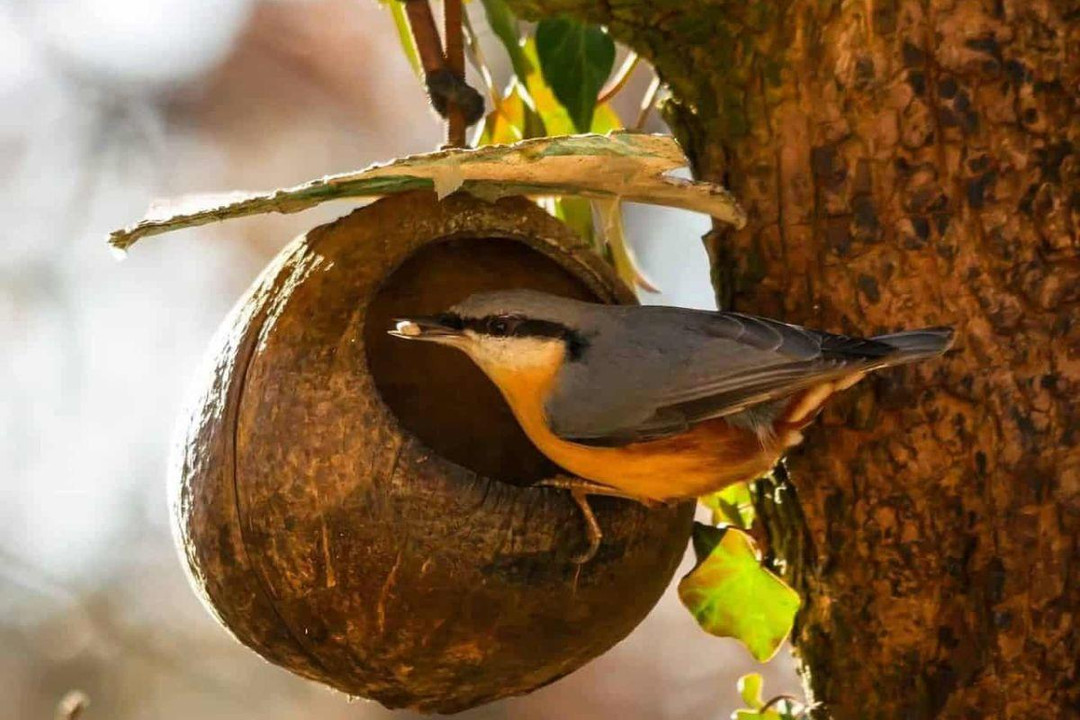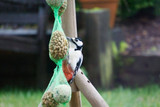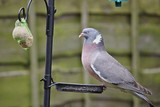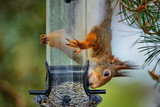Foods To Avoid When Feeding Wild Birds
A quick overview of foods to avoid when feeding wild birds.
Feeding the birds that visit your garden is a great way to support wildlife and spot wild birds. You may even be tempted to share some leftovers from your own meals with your garden birds, however, while some human food is safe for birds, other things we eat can be potentially hazardous or even fatal to wild birds. That’s why you need to know what foods are safe and what foods to avoid. In this blog, we’ll take a look at what food you shouldn’t feed birds to keep your feathered friends safe and healthy.
Avoid feeding salty foods to wild birds
Birds need some salt in their diet, but as with us humans, too much salt can be harmful and since birds are so much smaller than us, the quantity they need is minuscule in comparison to the amounts found in some of the foods we enjoy.
Even foods that are only lightly salted to you or I can contain far too much salt for a small bird. This means that you shouldn’t feed birds salty processed foods like bacon, pizza or crisps, for example, or home-cooked foods that have had salt added to them during cooking or at the table.
Avoid feeding bread to wild birds
While bread isn’t actively harmful to birds, it isn’t particularly good for them either, especially in large quantities. Big chunks of bread can also present a choking hazard to smaller birds, particularly if it’s already begun to go stale and hard. There are plenty of other inexpensive foods that taste delicious to birds and offer the right balance of nutrients, such as sunflower hearts for birds or our own economy wild bird seed.
Avoid feeding avocado to wild birds
Avocado might be good for humans but it can be dangerous to wild birds. That’s because avocados contain a fungicide called persin. This isn’t harmful to people (and in fact, may even be good for us) but it can cause problems with birds’ hearts and lungs that can even prove fatal.
Some species of wild birds can eat avocado safely, but when you put food out in your garden, there’s no telling who might fly by and eat it, so it’s best to be safe and avoid putting avocado out altogether.
Avoid feeding milk to wild birds
Birds are lactose intolerant, so milk and other types of dairy are totally off the menu! Whilst some birds may be able to handle a very small amount of milk, it’s far more likely they’ll end up with an upset stomach.
Birds do need to drink though, so always offer a supply of fresh water alongside good quality bird food to the wild birds visiting your garden. A bird bath is a great way to do this and allows birds to drink the water and quench their thirst as well as using it to clean their feathers too.
Avoid feeding fruit pits and seeds
You may be surprised to hear it, but many fruit pits and seeds actually contain cyanide! Don’t worry, this doesn’t make them dangerous to humans as the amounts are so small, however, for wild birds, who are much smaller than us, the dosage can be harmful or even lethal.
You shouldn’t feed wild birds the pits from cherries, peaches, plums, apricots or nectarines. You should also avoid feeding them the seeds from pears or apples for the same reason.
Avoid feeding chocolate and sweets to wild birds
Many of us love chocolate and sweet treats but birds don’t! You shouldn’t feed birds chocolate or sweeties. Chocolate contains both dairy and caffeine and even very tiny amounts of chocolate can make a wild bird very poorly, with digestive issues and heart and breathing difficulties, and may even kill smaller birds.
Meanwhile, sweets like jelly beans, for example, make a great treat for us humans but unfortunately, they can present a choking hazard to wild birds of all sizes.
Avoid foods that are a choking hazard
As well as sweets, there are lots of other foods that can present a choking hazard to birds, such as loose, whole peanuts, uncooked beans, chunks of bread, desiccated coconut, breakfast cereals and many more. Smaller species of birds are particularly at risk of choking on small, hard foodstuffs.
If you want to feed birds nuts, always ensure you buy peanuts for birds and use a good-quality peanut bird feeder. A proper bird nut feeder is the safest way to feed nuts to birds without the risk of choking and it also keeps the peanuts safe from any pesky squirrels trying to steal your bird food!
Avoid feeding spoiled or mouldy foods to wild birds
We hope it goes without saying but any food that is going bad or may be spoiled or contaminated in any way, shouldn’t be left out for the birds visiting your garden. This even applies to specially formulated bird food that is no longer fresh or is showing signs of infestation.
Good quality bird feed can keep for a long time if stored in the right conditions but if your bird food shows any signs of spoiling, such as having a musty smell, for example, then you shouldn’t feed it to birds. For tips on keeping your bird feed fresh, see our recent blog What Is The Best Bird Food Storage Container?
Explore Popular Articles
-
8 Easy Ways to Attract Woodpeckers to Your Garden
8th Apr 2024Woodpeckers are among the most interesting birds known for their drumming sound and bright colours.
-
How to Protect Your Bird Feeders from Pigeons ?
28th Mar 2024You must have noticed damaged feeding ports, hanging mechanisms, perches, lids and bottoms. Who coul
-
5 Foolproof Ways to Rat-Proof Your Bird Feeder
18th Mar 2024Building a bird-friendly environment is a delightful endeavour, but it involves the responsibility o




